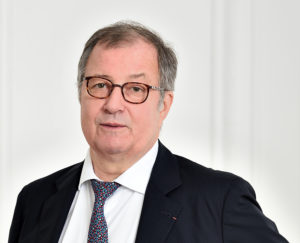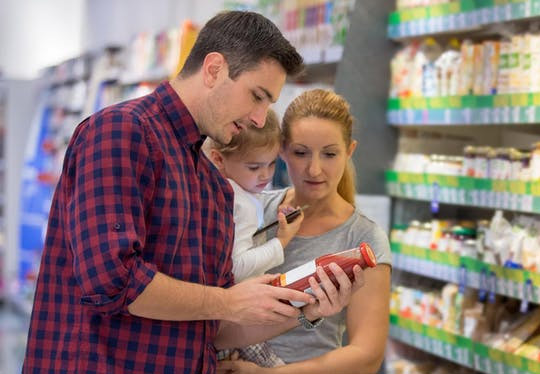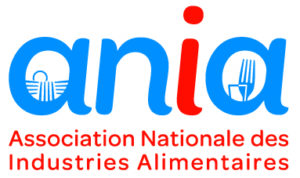 Could you introduce us to ANIA, its missions and competences, as well as the key figures of the business sectors that you represent?
Could you introduce us to ANIA, its missions and competences, as well as the key figures of the business sectors that you represent?
With its 17,000 companies, 429,000 employees throughout the country, and a turnover of 180 billion euros per year, agribusiness remains the leading French industrial sector and the country’s leading industrial employer. Ania’s mission is to represent, inform and support companies in this sector by putting its various competences at the service of its members. Through 39 “trade unions” and 17 regional associations (Aria), Ania brings food companies together around a goal that we now consider to be a priority: acting for safer, healthier and more sustainable food so as to meet consumers’ expectations.
What are the major issues and priority objectives? And what are the levers for dealing with them?
It is essential for us to restore our margins. It is an absolute precondition for companies to regain investment capacity, to be able to innovate and to offer consumers products that meet their expectations. While the Food Law has just come into effect, large-scale distribution finally has the means to put an end to this price war that is hurting our businesses, and agricultural upstream, for the last 6 years.
This is a major challenge and even more of a priority as the sector undergoes violent shocks: global market upheavals, soaring commodity prices, intemperate global competition, over-regulation, crazy hunt for low prices, which reduce margins every year and thus future investment capacities… Companies are still resisting, but resisting is not enough to allow this sector to develop at the level that it should be developing.
We must return to the path of economic growth while restoring confidence with consumers, by increasing the value of our products, by assuming our profession high and strong, we are present in all territories and we are proud of it!
The whole world envies us for our food, and our terroirs.
Never has our diet been so safe. Yet, we are the target of a real “panic marketing”. It is important to fight against caricatured and incessant attacks on food which lead to the endless destruction of our activities. Faced with this situation, we launched a food-info-intox.fr response website to clearly answer false information regarding our food.
Consumer expectations are changing. In real terms, what are the Food Industries’ actions to apprehend and guarantee healthier and safer food?
We have a know-how and quality, recognized internationally, that was never before reached in our profession. The 429,000 women and men who make up the food sector today get up every day with the concern to do their job well. We improve our recipes and innovate to better meet consumer’s expectations. To restore confidence, it is essential to explain our daily work, to report our progress and to always provide the objective elements necessary to reassure the proven safety of our products.
Consumers expect more from us than just products. They expect information, transparency and concrete commitments. They want a company to have sustainable practices, be responsible, and participate in the economic activity of its territory.
Conscious of their responsibilities, food companies have been working for many years to anticipate and find adequate and comprehensive responses to the legitimate expectations of consumers, to develop their activities in respect of the environment, to offer healthy, safe and quality products, to innovate, to maintain and create jobs in the territories. Our “1000 days to eat better” manifesto includes strong commitments from businesses and all professions. It is these good practices that we will further promote. It will be the cornerstone of our legitimacy, with commitments that we will deliver.
In food safety and nutritional quality, efforts are constant. In addition to scrupulous compliance with regulations, companies are multiplying good practices in health control.
Convinced of the need to promote, along with public authorities, healthy lifestyles, for several years they have been engaged in voluntary approaches to the nutritional optimization of their products, reformulations, working on portion size, nutrition information, and communication towards children targets… These efforts do pay off: France, world leader in nutritional quality and food safety, is recognized worldwide for the quality of its food and its food model. We are also one of the OECD countries with the lowest rates of overweight and obesity, with a stabilization observed in recent years, even though the sedentary lifestyle is tending to increase.
What does it mean for you to meet the societal and environmental challenges of tomorrow?
Regarding the environment and sustainable development, for many years companies have engaged in virtuous initiatives, reducing their environmental impact and increasing the societal value of their company.
Firstly, we must act on supplies by choosing to buy from farmers with responsible approaches (for example agroecology, input reduction, and livestock breeding models). To develop sustainably is:
- To take charge of the management of our packaging and the recycling of containers at the end of their life. There are many initiatives to eco-design packaging, to use recycled and bio-sourced materials, to contribute to the development of recycling channels, to optimize transport packaging and to inform and educate consumers about the sorting process.
- To improve our logistics and transportation. How to shorten the circuits? How to burn less energy to transport processed products? Everywhere in France, business leaders and their teams work to bring to these major questions concrete and effective responses, ones that are good for the planet and for the companies themselves.
- To optimize water and energy consumption: Large companies and SMEs are constantly investing in processes that consume less water and energy.
- To commit strongly to the fight against food waste, and the efficient use of the entire resource (valorisation in other areas in particular), whether it concerns the optimization of manufacturing processes or donating food to associations. With the producers, they contribute to a quarter of the collection of Food Banks which provide half of the food aid in France.
- To develop strategies and action plans by fully integrating Corporate Social Responsibility (CSR). Through CSR, companies establish a sustainable and quality dialogue with their stakeholders to best integrate societal issues into their strategy. We must all integrate a CSR policy into the conduct of our businesses.
Faced with a consumption being progressively taken over by digital technology, why has ANIA created a digital catalogue of foods?
Today, digital technology is giving us new ways to make our manufacturing processes more widely known and to promote the many quality approaches of the sector to the consumer. With the digital platform project Num-Alim we are taking the next step in terms of transparency. Finally, we will have a reliable, comprehensive and up-to-date source to guide consumers in their choices. Num-Alim is a priority and strategic project for ANIA and food companies. The dialogue is open, reliable information on the products will circulate, and the digital transition for an ever more sustainable and responsible food is launched! And this platform will be available to all mobile applications that want to integrate it.
What are the major European projects in which you participate? What role should ANIA play in relations with Europe?
First of all, I would like to recall the importance of Europe for the French food industry. Europe is our first customer (70% of our exports are destined for the European single market) and it is thanks to this unique market that many of our companies have been able to develop and that our products are known and available all over Europe for European consumers.
In addition, the regulatory framework governing food products is defined at European level: 90% of the regulation of our products is of Community origin.
Our companies operate in an open and highly competitive market that drives them to be creative and innovative. ANIA participates in European collaborative research projects by giving itself the mission to participate in research efforts carried out in Europe on topics such as the nutritional needs of seniors, existing solutions to reduce the environmental impact of our activities, good practices to always improve the level of safety of our products and thus meet consumers’ expectations. These battles must be conducted collectively. These European collaborations also allow us to stay informed about what is happening in other European countries and to identify existing skills beyond our territory.
We also work within the framework of European projects for the promotion of agricultural products which allow us to accompany French companies of all sizes and all sectors, experienced or not with export, to promote their products all over the world.
The French food model is envied throughout Europe; we are recognized as the country of gastronomy and taste, quality, diversity and food security. Through our products, our terroirs, it is the image of the France brand that we must defend and promote. We must create the conditions for our success and seize opportunities!
9 bd Malesherbes 75008 Paris
Tel : 01 53 83 86 00
infos@ania.net
Suivez-nous : www.ania.net | Twitter



















